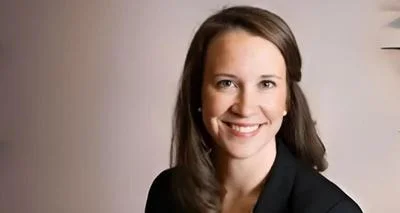Gov. Tony Evers | Gov. Tony Evers Official U.S. House headshot
Gov. Tony Evers | Gov. Tony Evers Official U.S. House headshot
MADISON — Gov. Tony Evers, together with Wisconsin Department of Veterans Affairs (DVA) Secretary James Bond, announced today that applications are now being accepted for the second round of three Veteran Mental Health Grants—the Emergency Crisis Mental Health Treatment Program Grant, the Veteran Mental Health Ancillary Treatment Program Grant, and the Veterans Mental Health Community-Based Organization Grant. These grants are part of Gov. Evers’ $10 million investment in mental health and services, funded through the American Rescue Plan Act.
“I am proud that our state has been a key partner in work to help ensure our 300,000 veterans have the full range of support and services they need to thrive and be successful following their reentry into civilian life,” said Gov. Evers. “These grants are going to make a real difference for veterans and their families across Wisconsin, and my administration remains committed to advancing initiatives to invest in the mental well-being of our nation’s heroes.”
“Caring for the mental health of veterans is a top priority for the state of Wisconsin,” said DVA Secretary James Bond. “I encourage those who work with veteran mental healthcare in any capacity to apply. We need partners across the state to ensure this care is available and accessible to all who served.”
For all three grants, any applicant who applied during the first round of applications is eligible to apply again, subject to limitations contained within the grant application. All further questions about the grant application process should be directed to the DVA Grants Unit at vetsbenefitsgrants@dva.wisconsin.gov. Applications must be received by 11:59 p.m. on Thurs., Jan. 11, 2024. For additional information on the grants, including evaluation criteria, application materials, and tips for applying, please see the DVA Grants Page.
The Emergency Crisis Mental Health Treatment Program Grant is open to mental health providers administering emergency/crisis mental health treatment for Wisconsin veterans. Individual grants requested are subject to the availability of funds and may not exceed $200,000 per applicant. The provider must have at least one employee who possesses one of the following professional degrees: psychologist (Ph.D. or Psy.D.), licensed professional counselor, licensed marriage and family therapist, social worker with a master’s degree or higher, psychiatrist, or psychiatric or mental health nurse practitioner. The grant round will award up to $1,020,593 for this program.
The Veteran Mental Health Ancillary Treatment Program Grant is open to certified/licensed mental health providers who provide ancillary veteran mental health treatment programs for Wisconsin veterans. Individual grant requests may not exceed $100,000 per applicant and are subject to the availability of funds and further limitations contained within the grant application. The provider must have at least one certified/licensed occupational therapist, certified occupational therapist assistant, massage or bodywork therapist, acupuncturist, art therapist, clinical substance abuse counselor, dance therapist, dietitian, music therapist, prevention specialist, equine therapist (certification must be from the Professional Association of Therapeutic Horsemanship International), or recreational therapist (certification must be from the National Council for Therapeutic Recreation Certification). The grant round will award up to $555,000 for this program.
The Veterans Mental Health Community-Based Organization Grant is open to registered 501(c)(3) nonprofit organizations that promote positive mental health through activities, programs, and services that enhance the emotional, psychological, and social well-being of Wisconsin veterans. Subject to further limitations contained within the grant application, each nonprofit can receive up to $100,000 to support its efforts in providing mental health support for veterans. The grant round will award up to $600,000 for this program.
In September, Gov. Evers and DVA Secretary Bond announced the first round of grants for these programs, awarding nearly $650,000 in grants to 16 nonprofit organizations through the Veterans Mental Health Community-Based Organization Grant Program to promote positive mental health through activities, programs, and services that enhance the emotional, psychological, and social well-being of Wisconsin veterans.
As mentioned, the Veterans Mental Health Community-Based Organization Grant is part of Gov. Evers' $10 million investment in veterans services, which was funded through the American Rescue Plan Act and based on recommendations released by the Governor’s Blue Ribbon Commission on Veteran Opportunity. In his 2022 State of the State address, Gov. Evers announced that he would be signing an executive order creating the Commission to develop new, innovative initiatives to support the more than 300,000 veterans who live in Wisconsin. The Commission was charged with identifying gaps in existing services, areas in need of robust investment, and reducing barriers to economic security, including efforts to expand access to higher education and job training, address housing insecurity, and increase mental and behavioral health support and substance use disorder treatment. Following the release of the Commission’s final report and recommendations in September 2022, Gov. Evers announced this $10 million investment in veterans services across the state, and more details about the investment are available here.
Earlier this year, Gov. Evers signed the 2023-25 biennial budget, which provided some critical state investments in programs serving Wisconsin’s veterans, including:
• $330,200 in each year to increase funding for grants to county and Tribal veterans service offices by 25 percent, ensuring that Wisconsin’s more than 300,000 veterans have access to vital services regardless of their ZIP code;
• $2.5 million to support the state’s veterans homes, as needed, so that these vital facilities can retain staff, address building and operational needs, and provide the quality of care that our state’s veterans deserve; and
• Increased funding for supplies, services, and other needs at our state’s veterans homes to ensure our veterans are receiving quality care.
An online version of this release is available here.
Original source can be found here.






 Alerts Sign-up
Alerts Sign-up